| If you can't view the email, please click here. |
|
|
|
D. Nigâr Göksel, From the Desk of the Editor
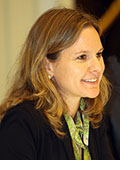
“This issue of TPQ takes up a wide range of problems plaguing the Middle East and North Africa today: from internal conflicts and proxy wars to rising sectarianism and the predicament of minorities to strategic incoherence against a potentially global jihadist threat. The need for cooperation and moderation is articulated by authors of diverse conviction, background, and professional affiliation.”
“This issue comes at a time when important game changers are in store for the Middle East. The potential effects of a nuclear deal with Iran make up one of these factors addressed by many authors here. Another important development in the short term will be the June 2015 parliamentary elections in Turkey, which will have important implications for the Kurdish peace process, in itself with far-reaching regional repercussions.”
|
|
|
Mevlüt Çavuşoğlu, Turkey’s Middle East Policy
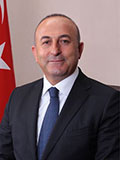
“Most of the tensions we are witnessing today in the Middle East and North Africa (MENA) originated in the popular uprisings for freedom, dignity and prosperity that began four years ago. Despite some setbacks, the Arab Spring has in fact shown us that the potential for change and progress inherently exists in the region.”
“It was the [Assad] regime’s sectarian policies that helped create one of the most horrendous terrorist threats of our time: DAESH. So, it should not be too difficult to discern that as long as Assad clings to power, stability cannot be reinstated in Syria. The fight against extremism cannot be won with Assad in Damascus.”
“Turkey has been making significant contributions to the efforts aimed at creating a strong, democratic, and prosperous Iraq. Our vision for Iraq encompasses an environment where none of the groups dominates the others. Only in such an environment will a common national identity prevail and the ethno-sectarian cleavages be left behind.”
|
|
|
Şafak Pavey, Democracy for Another Spring

“Despite modern democracy’s bright promises and the full support of Western optimists, the governments of Egypt, Libya, Syria, Iraq, and Yemen did not prevail over religious populism. Quite the contrary, the advent of democracy strengthened religion-based violence. The winds carried by social media that blew during the Arab Spring brought on blood and frustration rather than freedom and happiness.”
“In some cases, the democratic rights of the weaker segments of society were protected by the army interfering in politics, which could be constituted as democracy’s greatest enemy. This is an irony that the Western world cannot really perceive. Look no further than the example of Egypt!”
“The collapse of Turkey’s respected and solid foreign policy is another tragedy. Turkey’s ninety year-long effort to stay out of this chaotic quagmire has been squandered by the AKP’s desire to lead the region. The atrocities to which Turkey has contributed will eventually hit Turkey back mercilessly.”
|
|
|
Ekmeleddin İhsanoğlu, Cooperation as a Way Out of Turmoil

“The Middle East states born in the aftermath of World War I had lived the past century hanging between the imperatives of the former European Westphalian order and the subsequent Cold War order, and the whims and caprices of selfish leaders.”
“Today, the objective is not to redraw the borders in the region, which have lost their main function of securing the countries against external dangers of radicalism, violence, and terrorism. Rather, the objective is to transform these borders from being sources of problems into meeting points and convergence zones through securing peace and stability, and promoting economic cooperation in the region.”
“I would like to reiterate the call that I made in October 2010 in my capacity as the Secretary General of OIC, at the international forum on Nuclear Security and Nonproliferation of Nuclear Weapons, co-organized by Amman Security Colloquium. I called on participants to collectively work hard to declare the Middle East a nuclear-free zone in parallel to Central Asian countries’ successful example.”
|
|
|
Dov Zakheim, The Empires Strike Back
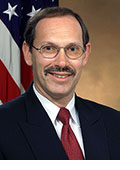
“Britain’s departure ‘East of Suez’ in the late 1960s, followed by the petroleum price hikes in the aftermath of the 1973 Yom Kippur War and the second round of increases in 1979 accelerated Saudi Arabia’s increasing importance as a major Gulf power. Equally important to the Kingdom’s political fortunes was the fall of the Shah, also in 1979, hitherto US’s premier regional ally and surrogate.”
“It appears as if Washington is prepared to revert to the old Nixon Doctrine of ‘offshoring’ to Iran the role of maintaining stability in the region (…) At the same time, the [Obama] administration appears prepared to downgrade its relationships with Israel and Saudi Arabia, even as it has done the same with Turkey.”
|
|
|
Hemin Hawrami, The Iraqi Kurdistan Region’s Role in Defeating ISIL

“Today, ISIL is operating in Iraq and Syria – tomorrow, they might be in your background. The even more terrifying fact is that there has been underground recruitment to bring young people into this barbaric terrorist group. Hence, people joining ISIL from around the world should be of concern to every freedom-loving nation.”
“The bottom line is that the peshmerga forces cannot fight this battle alone and with limited weapons. We stand ready to do our part in degrading and defeating ISIL in the region as well as contributing to the stability of Iraq, Syria, and the broader Middle East, but our peshmerga forces must be provided with arms, equipment, and training.”
|
|
|
Behlül Özkan, Turkey’s Islamists: From Power-Sharing to Political Incumbency

“The coup of 12 September 1980 was instrumental in paving the way for the ascendancy of political Islam. It did so both directly, by ensconcing the ‘Turkish-Islamic synthesis’ as Turkey’s underlying state ideology, and indirectly, by crushing the country’s leftist opposition, with the result that Islamists came to represent the sole political outlet for the grievances of many low-income members of society.”
“The AKP differs from its Islamist counterparts in Egypt, Syria, and Tunisia in one crucial respect. Islamist parties in those countries have had little experience of even being allowed to run in elections, let alone forming coalition governments and having government ministers emerge from their ranks.”
|
|
|
Erşat Hürmüzlü, The Turkmens of the Middle East
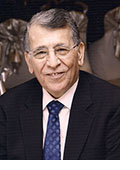
“Following the break-up of the Ottoman Empire, the Turkmens suffered a great deal. In 1924, the British deployed the Levy forces to suppress nationalist sentiments by any means necessary; the levies were directly responsible for looting and the loss of Turkmen lives.”
“Despite millions of Turkmens spanning a region consisting of five countries, there is an urgent need to raise their voices in unison and increasingly conduct awareness-raising activities. This can be achieved by engaging with research organizations and international platforms that will enable the Turkmens not only to present credible and factual realities about situations on the ground to the greater Turkish community, but, I would argue more importantly, to increasingly engage with other nations, and especially other minorities.”
|
|
|
Bernard El Ghoul, Protecting Eastern Christianity: Russia’s New Diplomatic Tool?

“Since the end of the Soviet era, the Orthodox Church has been establishing itself as a major diplomatic actor. Patriarch Kirill of Moscow and All Russia, elected in February 2009, embodies this new dynamic. He has used the defense of Eastern Christianity as a tool to build an influential policy in the Middle East and to consolidate Russian influence on a global scale.”
“Christians and Shiites, especially those in Iraq and Syria, are targeted by Sunni extremists since both religious communities are seen as ‘infidels.’ This Shiite-Christian alliance is therefore supported by Russia as it reassures Christians in the Middle East, who are surrounded by Muslims and are increasingly afraid of Sunni extremism.”
|
|
|
Lina Khatib, Hezbollah’s Ascent and Descent
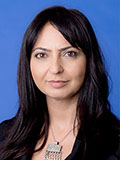
“Hezbollah today is at a crossroads. On the one hand, the “Party of God” remains the strongest political party in Lebanon. On the other hand, its involvement in the Syrian conflict in support of the regime of Bashar al-Assad has come at a great material as well as political cost.”
“Hezbollah’s weapons are the main motivation behind its involvement in the Syrian conflict. Syria is where Hezbollah’s weapons pass through from Iran, and where Hezbollah stores some of those weapons, as well as being the place where it trains its troops. The Syrian uprising threatened to topple the Assad regime, which, for Hezbollah, would have carried the risk of losing this important lifeline.”
|
|
|
Sabri Sayarı, Turmoil in the Middle East and Turkish-American Relations

“The volatility that had characterized US-Turkey relations in the aftermath of the 2003 Iraq War has increased following the outbreak of the Arab Spring. The last four years have witnessed greater divergence than convergence between Washington and Ankara on a number of issues related to the growing turmoil in the Middle East.”
“The unraveling of the AKP’s Middle East policy stemmed from a fundamental miscalculation of Turkey’s power and capacity to shape regional developments. This was best demonstrated in Syria, where Turkey failed to attain its goal of a major regime change. Turkey’s inability to project its power beyond Turkish borders contrasted sharply with Iran, which has managed to exert its influence directly or through its proxies in Syria, Iraq, Lebanon, and most recently, Yemen.”
|
|
|
Merve Tahiroğlu & Benham Ben Taleblu, Turkey and Iran: The Best of Frenemies
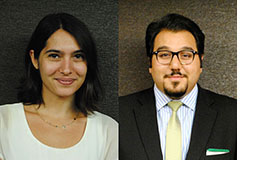
“Today, the Turko-Persian relationship does not fall into the strict categories of enmity or amity. Rather, it strikes a balance between the extremes (…) a nuance that is best captured by the term “frenemy.” While seemingly a paradoxical concept, frenemies are able to straddle the gray area between adversity and alliance, and can concurrently castigate and embrace one another other.”
“Iran and Turkey bring different assets to bear on the Middle East…At present, both models are vying for the sympathies of Middle Eastern publics, but the simple difference is that to further their respective interests, Turkey uses the prevailing international order, while Iran rejects it.”
|
|
|
Mojtaba Barghandan, Iran’s New Social Media-Friendly Approach
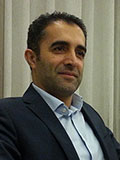
“The coming to power of President Hassan Rouhani and his 11th administration heralded a much-needed reinvigoration of Iran’s public and digital diplomacy (…) Rouhani’s administration realized that the Internet and social media should be at the forefront of efforts to craft an alternative narrative to long-propagated narratives on Iran’s peaceful nuclear activities and also promote the much-maligned status of Iran.”
“President Rouhani and Foreign Minister Zarif’s embrace of social networking has helped cast the new administration in a moderate light while also distancing it from the manner of diplomacy of the 9th and 10th administrations under Ahmadinejad. For example, in a Twitter exchange with Nancy Pelosi’s daughter, Zarif effectively declared that Holocaust denial was not Iran’s national stance.”
|
|
|
Itzhak Galnoor, Israel: Interrupted Democratic Development?

“The main threats to Israeli democracy derive from the rather consistent inability to resolve four main challenges: the continuous occupation since 1967, the status of Arab citizens in Israel, the growing socio-economic gaps, and the unresolved issue of state and religion.”
“The failure of direct elections [of the prime minister] revealed the complex web of relations between the democratic system and society in Israel. It changed the system of governance in a way that was incompatible with Israel’s social structure and political tradition. The main lesson learned was the need to be cautious of artificial transplants, because elements that work well elsewhere are not necessarily suitable for governance in other countries.”
|
|
|
Melek El Nimer, Education for Social Change in Lebanon

“The toll of [Lebanon’s protracted refugee] situation is born largely by the Palestinian and Syrian youth, who have very few prospects of education and job opportunities that could enable them to help themselves and their families out of poverty. Provided with such opportunities, the youth could be the first and most crucial step in alleviating some of the ailments of the refugee populations by ensuring the progressive development and improved economic situation of the following generations.”
“The work of Unite Lebanon Youth Project (ULYP) is structured in a manner to meet the developmental stages of the participants and their particular needs (…) The elements of conflict resolution and peace-building, as well as the ideals of tolerance, mutual respect, and justice are seamlessly integrated into all activities.”
|
|
|
Gabriel Mitchell, Turkey: The Almost Mediator State

“The failure of ‘zero problems with neighbors’ must be understood within the framework of a larger narrative where Turkey insisted on functioning as an intermediary between Israel and Syria, and the US and Iran. These episodes, during which Turkey overstepped the boundaries of its influence, revealed the limitations of Turkish foreign policy and foreshadowed its regional decline.”
“The ‘zero problems’ policy should have only been applied to Turkey’s relationship with its neighbors, and not the relationships between Turkish neighbors or relations between various actors in neighboring states. Turkey possesses neither the carrots nor the sticks to be a suitable mediator in those scenarios.”
|
|
|
Liina Mustonen, The Gender Dimension of the Authoritarian Backlash in Egypt
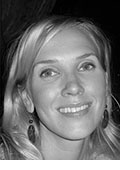
“The discourses preceding the downfall of the first democratically-elected president in Egypt, building on the dichotomy of traditional vs. emancipated woman, materialized in harsh rhetoric. The often-mentioned causes of anxiety among liberal circles during Morsi’s presidency included discussions on the use of the veil, lowering girls’ marriage age, and even the necrophilia law.”
“While a certain patriarchal system can cause uproar due to political factors, other patriarchal systems remain in disguise for the very same reasons. The abrupt de-politicization of the Egyptian upper echelon that vehemently argued for Morsi’s ouster discloses the secondary position of the category gender whilst indicating how gendered notions can be applied to defend an exclusionary imagery of Egypt available to a certain segment of the society.”
|
|
|
Have a counter-argument to one of the authors’ views?
Share it on TPQ’s Debates section. For guidelines click here. |
|
|
TPQ’S BLOG SECTION |
In the run-up to the release of TPQ’s Spring 2015 issue, we featured two blog posts that complement the issue’s scope – one the Yemeni situation and one on Turkey’s sectarian approach to MENA conflicts – in an effort to encourage an exchange of ideas on multiple platforms. |
|
|
Annelle Sheline, Calling Yemen a Proxy War is an Oversimplification

“In the Saudi view, Yemen maintains its sovereignty at the pleasure of the Saudi king. Therefore, Saudi Arabia’s initiation of military action against the Houthis is best understood as the Kingdom reasserting its dominance in what it considers its backyard. King Salman wishes to justify this intervention as a “legitimate” war by seeking to reinstate ousted President Hadi, but is also flexing his muscles as the new king of a regional powerhouse.”
“Portraying the intervention in Yemen as the result of a Saudi/Iranian and Sunni/Shiite proxy war demonstrates the tendency by interested parties to characterize conflicts according to dominant cleavages. Both antagonists and commentators have a vested interest in portraying the struggle as part of a broader conflict, because doing so attracts more attention and support. The rest of the world does not care about Yemeni internal politics, but it does care about a regional war fought along sectarian lines.”
|
|
|
Rachel Webb, Is Turkey Being Drawn into Another Sectarian Conflict in the MENA Region?

“As Iranian influence grows in Yemen, Syria, Iraq, and Lebanon, the benefit of bringing Turkey in as a counterbalance is clear for Saudi Arabia. But the benefit for Turkey is not so clear, especially because Turkey’s foreign policy has been defied by on-the-ground developments in Syria, Egypt, and other countries. Critics see the developing Turkey-Saudi relationship as another in a series of moves towards a more sectarian MENA region policy by the Justice and Development Party (AK Party).”
“What price will Turkey pay for aligning itself with the Kingdom? Observers point to an opportunity cost: taking sides on Yemen, like it did with Syria, could make it more difficult for Turkey to maintain its position as a mediator rather than an active participant in regional disputes.”
|
|
|
We welcome all our followers to contribute to TPQ’s Blog section.
For guidelines click here. |
|
|
The Premium Corporate Sponsor of this Issue
 |
|
|
Thanks to our partners |
 |
 |
|
|
 |
Address: Kadir Has Üniversitesi Cibali Kampüsü Sosyal Sorumluluk Binası ( Beyaz Ev )
Küçük Mustafa Paşa Mah. Seferikoz Sok. No:14 Kat.1 Fatih- İstanbul
Phone: +90 212 621 4442 - +90 212 621 9258 Fax: +90 212 531 8718 info@turkishpolicy.com
Click to unsubscribe |
|
|






















